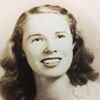Post Comment

Frances Carlson Monroe
Reader
Little Women
Louisa May Alcott

James Mustich
Louisa May Alcott grew up in Concord, Massachusetts, the second of four daughters of a noted proponent of Transcendentalism, Bronson Alcott. Ralph Waldo Emerson was a friend of the family, as were Henry David Thoreau and Nathaniel Hawthorne. Despite her transcendentalist pedigree, Louisa May Alcott ...show more
See All Comments (66)

Voices from Chernobyl
Svetlana Alexievich
This book is so human, so touching. It is hard to read in parts, but really beautiful in it's depiction of the human spirit.
Emma
Jane Austen
At twenty, Emma Woodhouse—“handsome, clever, and rich”—knows that she’s the most fantastic woman in Highbury, and nothing amuses her more than meddling in other people’s affairs. But although she has good intentions, her matchmaking goes seriously awry, wrecking a perfectly good engagement for her f...show more
Flatland
Edwin A. Abbott
A novel of mathematical whimsy, Flatland is set in the peculiar world that provides the book’s name and is home to its putative author, A. Square, a two-dimensional being in a world inhabited by lines, triangles, circles, and polygons. Ingeniously composed as a kind of dystopian memoir, Flatland is ...show more
Mansfield Park
Jane Austen
From a large and not too wealthy family, bashful Fanny Price is sent to live with her rich aunt and uncle at the house that gives this book its name. She finds herself intimidated by everyone there, except her kind cousin Edmund; constantly bursting into tears, she won’t even take part in her coeval...show more
Northanger Abbey
Jane Austen
The first written of Austen’s novels, Northanger Abbey was not published until after her death. It is a parody of Gothic fiction—a wildly popular genre in Austen’s day, and one with which Catherine Morland, the novel’s teenage protagonist, is unhealthily obsessed. She can hardly contain her exciteme...show more
Persuasion
Jane Austen
Though its plot may be less intricate than those of Austen’s earlier works, Persuasion is a captivating tale, and Anne Elliott is one of her most enduring creations. The last novel Austen wrote in her short life, it points toward an expansion of her extraordinary talents; in the pages of Persuasion,...show more
Pride and Prejudice
Jane Austen
The best introduction to Austen’s work is surely the second of the six novels she wrote before her death at only forty-one, Pride and Prejudice, in which she introduces us to Elizabeth Bennet, the wittiest and most vivacious of five sisters on the hunt—if their mother has her way, at least—for husba...show more
Sense and Sensibility
Jane Austen
Austen’s first published novel, which appeared under the pseudonym “A Lady,” is the story of two sisters, Elinor and Marianne Dashwood, and of the tension between private passions and public decorum. This is Austen’s most social novel, and in both town and country, she depicts a privileged class rif...show more
Watership Down
Richard Adams
I read this around middle school. It was transforming in many ways.
The Hitchhiker's Guide to the Galaxy
Douglas Adams
The Handmaid's Tale
Margaret Atwood
Suzanne Nelson brought an unorthodox approach to her presentation of The Handmaid's Tale, employing actors in costume and handheld signs underscoring the hypocrisy of the patriarchal society at the center of Atwood's novel at the Ridgefield Battle of 11/14/19.

